Some weeks remind us that making noise is not the same as being heard.
It could be the relentless buzz of AI models claiming territory they were never given. Or the rustle of community volunteers lifting bottle after bottle out of a neighbourhood lake. Or the ragged breathing of runners pushing past their first half-marathon wall. Each sound carries its own kind of significance—but not all are acknowledged, not all are valued.
The noise we’re surrounded by is manufactured: engagement algorithms, policy rollouts, platform promises. But meaning often lives in quieter places—in the decision of an entertainment giant to draw a line around its intellectual legacy, in a newspaper’s quiet pivot from courtroom to boardroom, in a child at a lake clean-up shouting “Got one!” each time she lifted another piece of trash.
What connects these moments isn’t scale or drama—it’s intent. The will to assert: this is mine, this matters, this deserves respect.
Ownership—whether of a character, a paragraph , a lake, or one’s own personal record—isn’t just about protection. It’s about pride. And increasingly, it’s about participation in how the future gets shaped. Who gets to train the models? Who gets to write the rules? Who gets to claim victory, and who gets forgotten in the data?
This week reminded me that no matter how much tech changes the surface of our lives, the heart of the matter is still human: dignity, contribution, recognition.
We don’t always get to decide the scale of our impact. But we can decide to show up—with clarity, with community, and sometimes, with gloves and garbage bags.
And in those moments—whether at a legal bench or a lake’s edge—we reclaim something more important than reach. We reclaim voice.
DTW
During the week, Disney and NBCUniversal jointly filed a copyright infringement lawsuit against Midjourney, accusing the generative AI image company of unauthorised use of their iconic characters and IP. The studios allege that Midjourney systematically ignored warnings and continued to develop tools that increasingly reproduce protected content.
This isn’t just about a few rogue Mickey Mouse lookalikes. It’s about suppliers in creative ecosystems asserting their economic and moral rights in the face of platform-scale AI.
AI systems, particularly in the generative image and text space, thrive on large-scale training data—often scraped or compiled without consent. Platforms like Midjourney or Stability AI rely on inputs from the cultural commons, but the commons was never theirs to extract freely.
The lawsuit, then, represents more than a legal dispute. It marks a new kind of strategic resistance: one where content-rich suppliers, historically seen as dependent on tech intermediaries, are turning the tables.
This is not isolated. We’ve seen a parallel arc in the publishing world. The New York Times, despite its ongoing lawsuit against OpenAI, recently signed a licensing agreement with Amazon. As reported across outlets, the deal allows Amazon to use NYT articles and recipes in Alexa’s AI models. This deal, while surprising to some, is actually a strategic triangulation. By distinguishing between general-purpose AI models (like ChatGPT) and embedded assistants (like Alexa), NYT avoids traffic cannibalisation while monetising their archive.
Analysts suggest this agreement may even reinforce NYT’s legal position against OpenAI: if the content has licensing value, then its unauthorised use is not just parasitic—it’s theft.
What we’re witnessing is a shift in bargaining posture. IP holders—once fragmented and reactive—are becoming unified and strategic. Hollywood’s cultural capital, combined with publishing’s legal pushback, may force AI firms to evolve beyond the “scrape now, apologise later” model.
But this is not just about enforcement. It’s also about economics. The AI era is not sustainable if it relies on uncompensated creative labour. There must be mechanisms—contracts, licenses, revenue shares—that allow suppliers to participate in the upside.
This is especially relevant for India, where AI models are beginning to rely on vernacular content, regional cinema, and traditional knowledge archives. If we’re not careful, we’ll replicate the same extractive patterns—just with new players and old victims.
The Midjourney case reminds us: scale does not equal legitimacy. And that cultural value, long seen as soft power, is becoming hard leverage.
In the platform economy, code may be king—but story is sovereign.
OTW
Over the Weekend, I was part of something humbling: a World Environment Day clean-up drive at Peeramcheruvu Lake, organised by Ascendion under their CSR initiative in collaboration with Rotaract. We gathered at 7 AM—students, professionals, residents, runners. Some knew each other, many didn’t. But all came to give back to something we usually pass by.
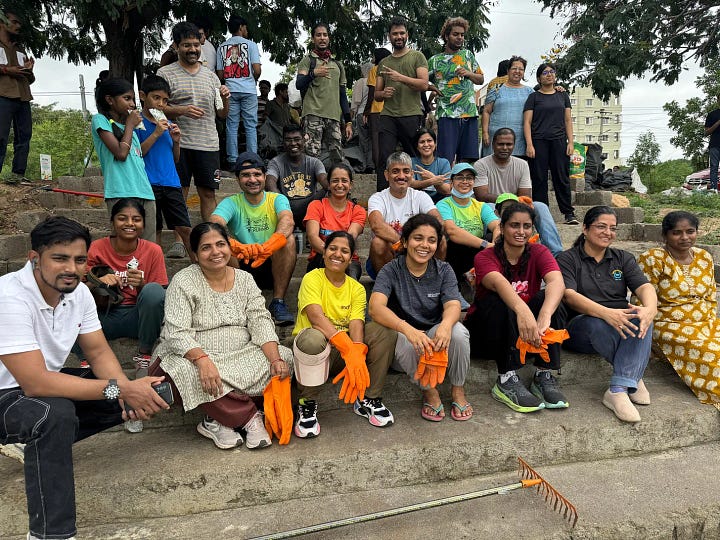
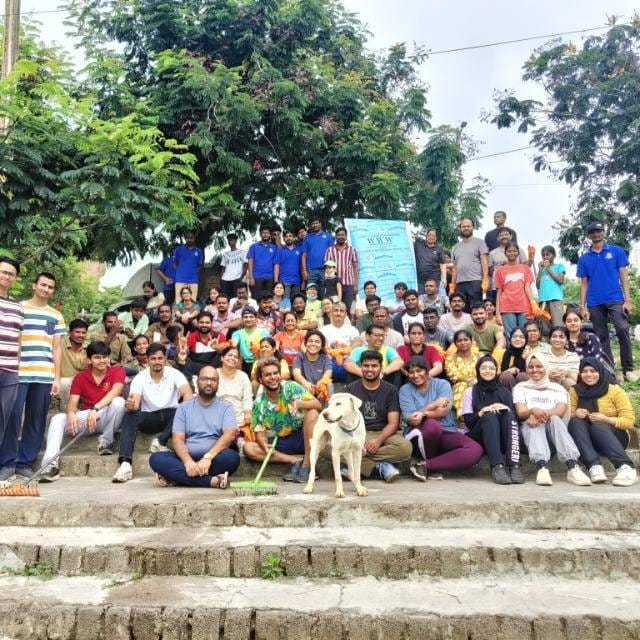
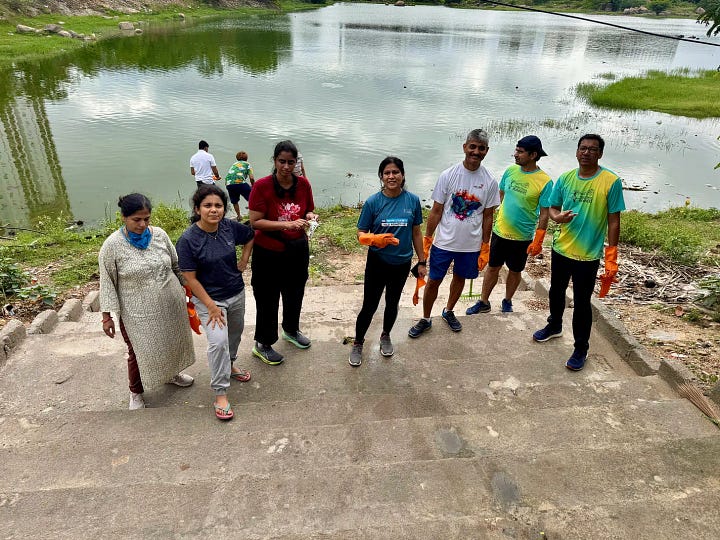
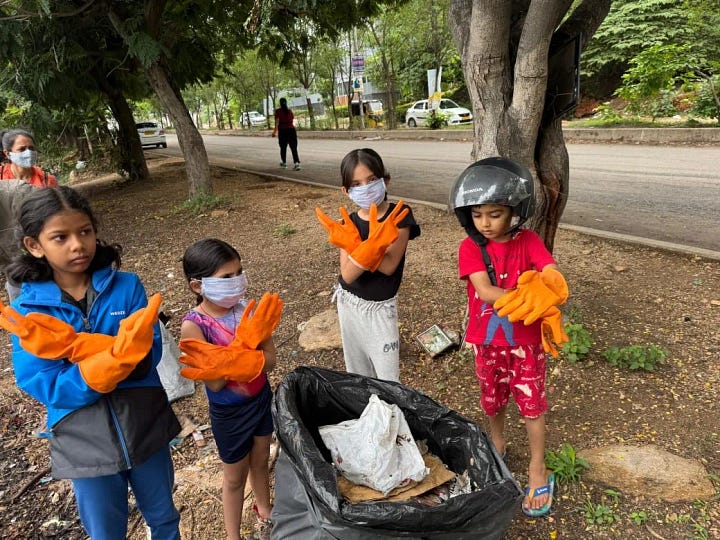
We hauled out bottles, wrappers, broken shoes, half-dissolved bags. There was grime, sweat, laughter, and a rhythm to the work—unscripted, cooperative, honest. It felt less like cleaning and more like remembering. That we live near something beautiful. That it deserves care, not just use. Maybe that’s all we need sometimes. A clear sense of purpose, even if the logic is a little magical.
Elsewhere in Peerancheruvu, the Hyderabad Runners Outdoor Kids Summer Camp wrapped up this week. For over two months, children from our neighbourhood woke up at dawn to run, stretch, laugh, and grow together. In the same ground where some of us cool down and catch up after Sunday long runs, they built their first routines of movement and mindfulness.
And in a quiet yet powerful parallel, mothers from the community joined our pilot Active Moms Programme, redefining what it means to show up—for yourself, your kids, your community.
On our regular running route, some of our Peeramcheruvu Runners marked milestones of their own—first half marathon, first 20-milers in training.
It’s the same instinct, really: show up, do the work, and make a small promise to the self that you’re not giving up.
These aren’t heroic acts. But they’re proof that care, discipline, and change are still possible.
And maybe that’s what the lake needed to hear.
I love you.
Shailendra




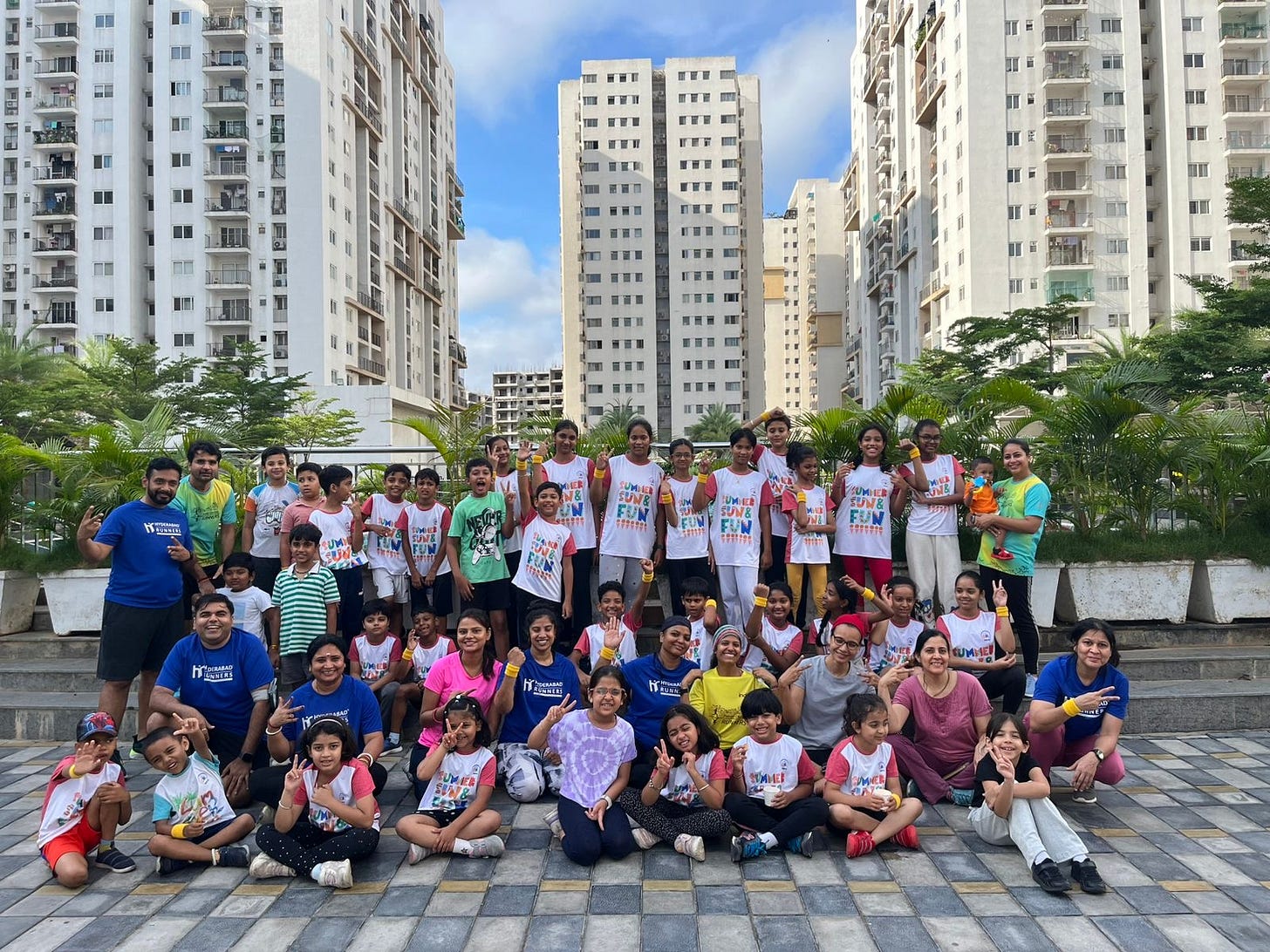

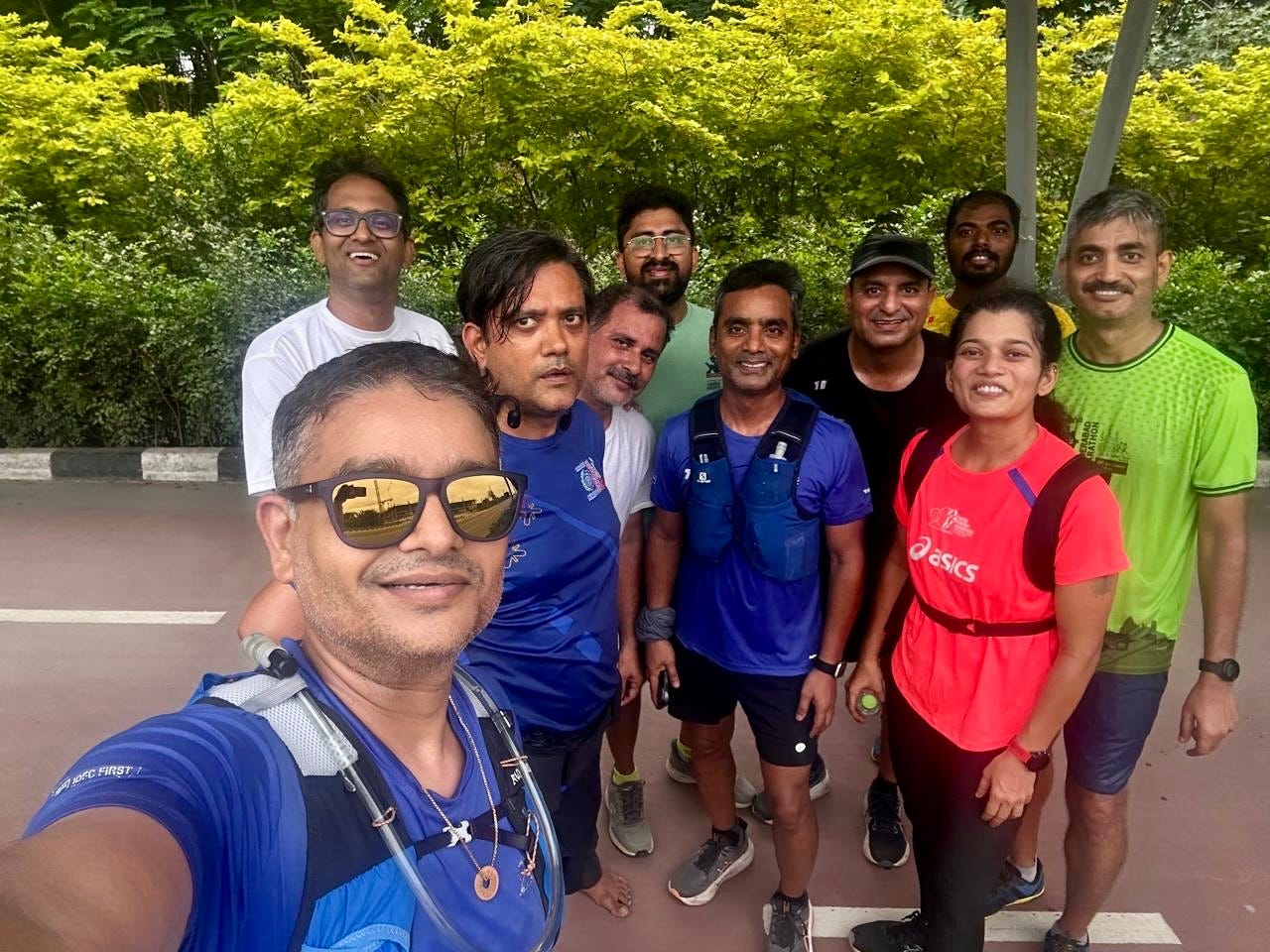
Keep posting